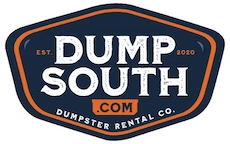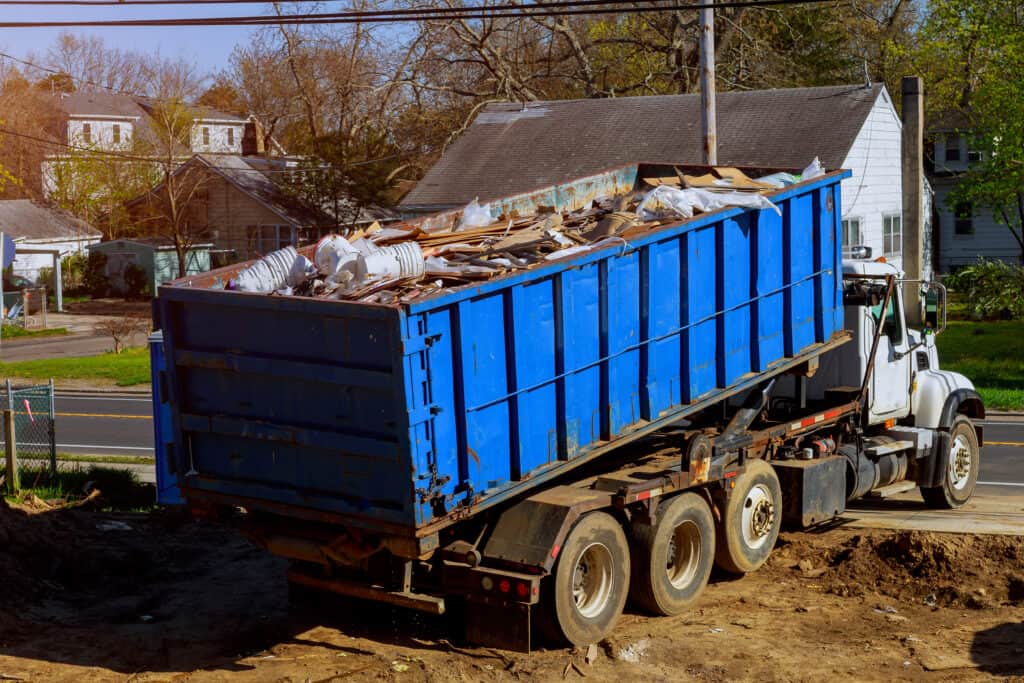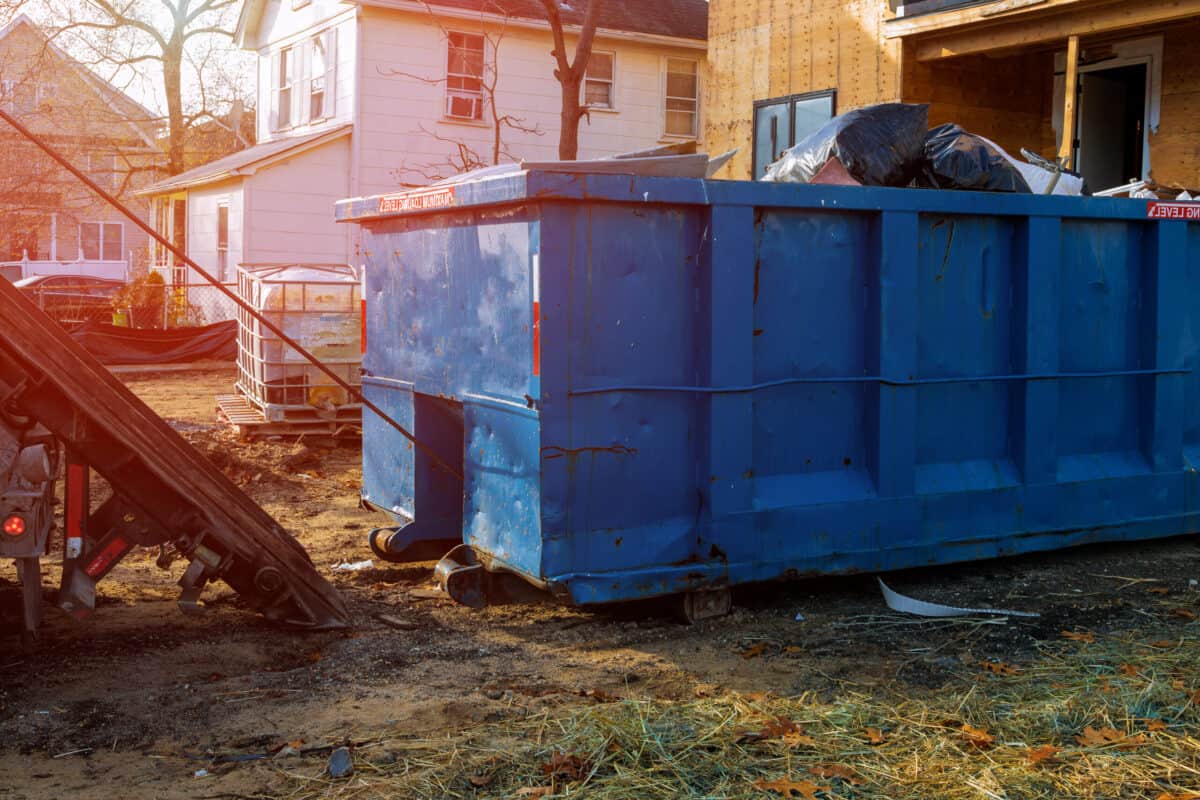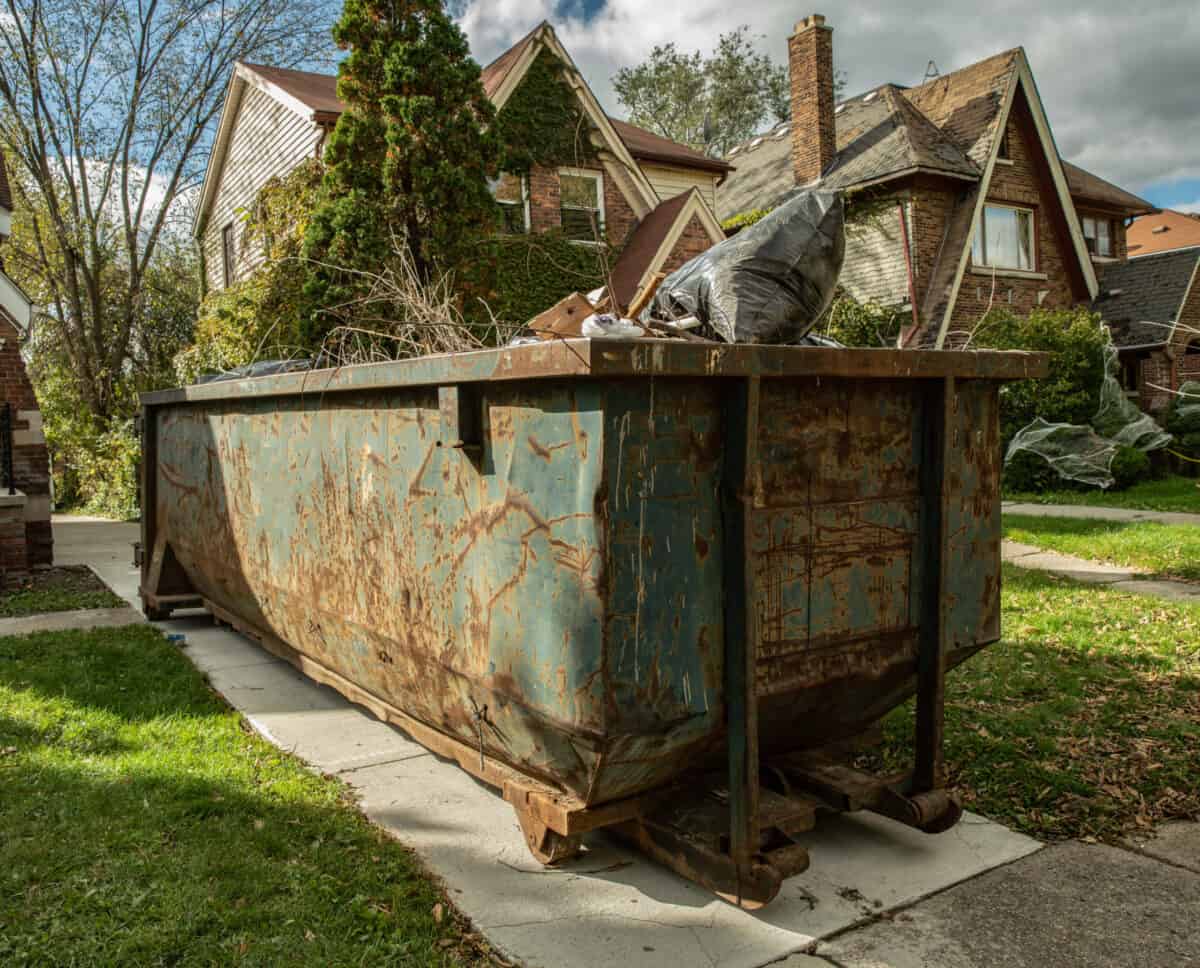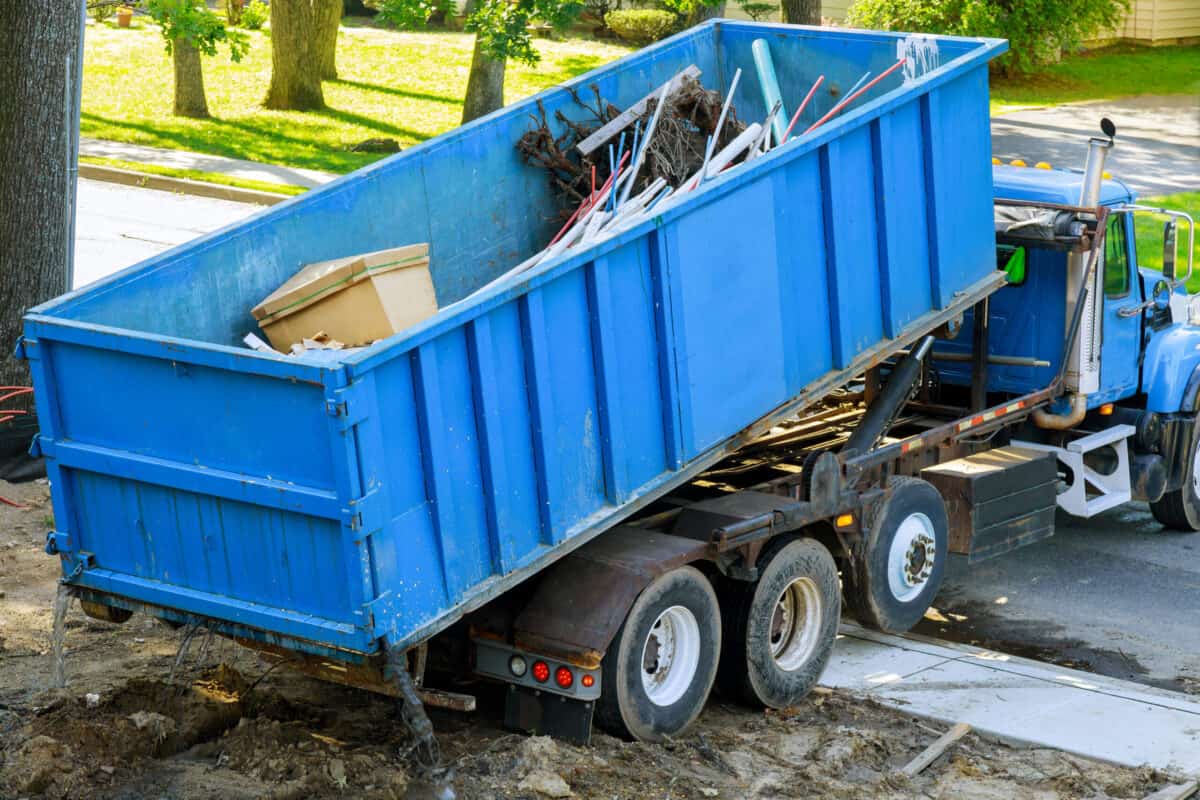Accurately Estimate Waste Volume
Estimating the volume of waste accurately is crucial when renting a dumpster. This step ensures that you choose a dumpster size that fits your needs without incurring extra costs. For instance, imagine you’re renovating your kitchen. This project might produce a moderate amount of waste, including old cabinets, countertops, and perhaps some old appliances. In such a case, a 20-yard dumpster could be the right fit. It’s large enough to hold the debris but not so large that you’re paying for unused space.
On the other hand, if you’re undertaking a larger project, like a complete home renovation or a major landscaping overhaul, you’ll generate more waste. Here, a 30-yard or even a 40-yard dumpster might be necessary to accommodate materials like drywall, lumber, or yard waste.
Misjudging the required size can lead to problems. If the dumpster is too small, you might end up needing a second one, which doubles your cost. Conversely, renting a dumpster that’s too large means you pay for space you don’t use. It’s like renting a huge moving truck for a studio apartment’s worth of belongings – it’s unnecessary and costly.
To avoid these pitfalls, it’s beneficial to discuss your project in detail with the rental company. They have the experience to help gauge the right size based on the nature of your project. Some companies even provide online tools or calculators to estimate the size you might need based on your project description.
Understand All Costs Involved
Understanding all costs involved in dumpster rental is crucial to avoid unexpected expenses. The rental price is not just about the size of the dumpster; various factors contribute to the final cost. For instance, the base rate typically covers the rental period, usually a few days to a week, and includes delivery and pickup. However, additional fees can quickly add up. Suppose you’re clearing out your garage and need a 15-yard dumpster. The base rate might seem affordable, but if your garage cleanout takes longer than anticipated, you could face extra charges for extending the rental period.
Weight is another critical factor. The rental company usually sets a weight limit based on the dumpster size. If you’re disposing of heavy materials like concrete or dirt from a small landscaping project, you might exceed this limit. Overweight charges can be significant, so it’s essential to discuss the nature of your waste with the rental company beforehand.
Some companies also charge for specific types of waste. For example, if you’re disposing of old electronics along with household clutter, there might be additional fees for electronic waste disposal.
Always ask for a complete breakdown of costs when you rent a dumpster. This breakdown should include the base rate, potential overage charges, fees for prohibited items, and any applicable taxes.
Know What You Can’t Dump
When renting a dumpster, it’s crucial to be aware of what items you’re not allowed to throw away. Each rental company has its own rules, but there are common restrictions to keep in mind. For example, hazardous materials are generally prohibited. These include items like paint cans, motor oils, batteries, and chemicals. Disposing of these materials in a dumpster is not only against the rules but also harmful to the environment.
Imagine you’re renovating your home and decide to throw in some old paint cans with the rest of your construction debris. Doing so could violate the rental agreement and result in fines. Another common restriction is on large appliances like refrigerators or air conditioning units. These items often contain refrigerants that are environmentally hazardous. Electronic waste, such as computers and TVs, is also typically prohibited due to the toxic substances they contain.
Additionally, many rental companies do not allow the disposal of tires in dumpsters. The reason is that tires don’t decompose and can cause issues in landfills.
It’s important to inquire with your rental company about their specific list of prohibited items. For items you can’t dump, you’ll need to find alternative disposal methods. Local waste management services often have specific drop-off days for hazardous materials. Some electronic stores offer recycling programs for old electronics. For large appliances, check if your city offers special pick-up services.
Selecting the Best Placement
Choosing the right location for your dumpster rental is more than just finding an open space. The location must be accessible, safe, and compliant with local regulations. Ideally, the spot should be close to where you’re working to make disposal easy and efficient. For instance, if you’re working on a home renovation, placing the dumpster in your driveway or as close to your house as possible is practical. However, ensure that the location can support the weight of a full dumpster without causing damage.
Accessibility is key. The delivery truck needs enough space to drop off and pick up the dumpster. This means considering overhead obstructions like power lines or tree branches and ensuring the path is clear of vehicles or other obstacles. If your driveway isn’t suitable or if you don’t have one, you might consider placing the dumpster on the street. However, this often requires a permit from your local city or town.
Safety is another important consideration. The dumpster shouldn’t block your view when exiting the driveway or create a hazard for pedestrians or vehicles. It’s also important to think about the surface where you’ll place the dumpster. Soft grounds or lawns might get damaged under the weight, especially if the dumpster is there for an extended period or filled with heavy materials.
Check Permit Requirements
When renting a dumpster, it’s essential to check if you need a permit, especially if you plan to place the dumpster on public property like a street or sidewalk. Permit requirements vary depending on your location and local regulations. For example, if you live in a busy city, the chances are high that you’ll need a permit to place a dumpster on the street due to traffic and public access concerns. In contrast, if you’re placing the dumpster on your private property, such as your driveway, you typically won’t need a permit.
Neglecting to check for permit requirements can lead to fines or the forced removal of the dumpster. Imagine you’re doing a home renovation in a residential neighborhood and decide to place the dumpster on the side of the street for convenience. If your city requires a permit for such placements and you don’t have one, you could face a penalty, adding unexpected costs and delays to your project.
The process for obtaining a permit usually involves applying through your local city or town hall. Some rental companies assist with this process or at least provide guidance on how to go about it. The application might require details like the size of the dumpster, the exact location where it will be placed, and the duration of its stay.
Follow Our Tips
In summary, a smooth dumpster rental service experience hinges on careful planning and awareness of several key factors. Accurately estimating the volume of waste ensures that you select the right dumpster size, avoiding unnecessary costs for space you don’t need or additional fees for overfilling. Understanding all costs involved, including potential overage charges, helps in budgeting effectively and avoiding surprises. Being aware of prohibited items prevents legal issues and contributes to responsible waste management.
Selecting an appropriate location for the dumpster ensures safety, accessibility, and compliance with local regulations. Additionally, checking permit requirements, especially when placing the dumpster on public property, is crucial to avoid fines and legal hassles. By considering these aspects, you can navigate the dumpster rental process with ease, making your project more efficient and stress-free.
